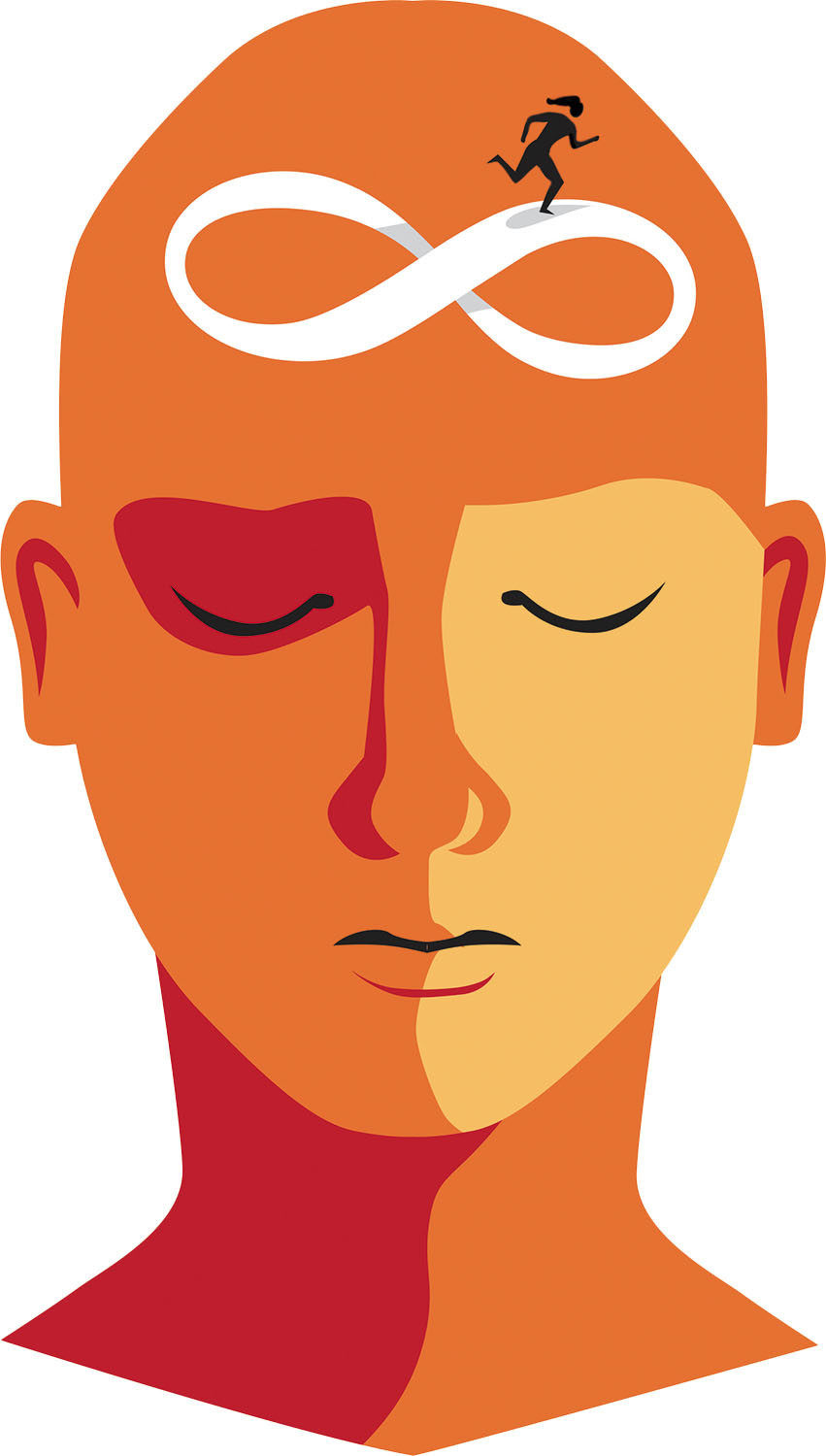
5 timeless habits for better health

What are the symptoms of prostate cancer?

Is your breakfast cereal healthy?

When pain signals an emergency: Symptoms you should never ignore

Does exercise give you energy?

Acupuncture for pain relief: How it works and what to expect

How to avoid jet lag: Tips for staying alert when you travel

Biofeedback therapy: How it works and how it can help relieve pain

Best vitamins and minerals for energy

Should you take probiotics with antibiotics?
Mind & Mood Archive
Articles
Managing intrusive thoughts
Intrusive thoughts are unwanted thoughts or mental images that make people feel uncomfortable. They're common, affecting some six million Americans and can be effectively managed using tools such as cognitive behavioral therapy. They can be associated with mental health disorders such as obsessive-compulsive disorder or post-traumatic stress disorder, but many people who experience them don't meet the criteria for a mental health disorder. The thoughts may be triggered by stress or anxiety.
Too much TV might be bad for your brain
A 2023 study suggests excessive TV-watching, defined as four or more hours a day, is associated with higher risk of developing brain-based disorders such as dementia, depression, and Parkinson's disease.
Not just good for the soul
Forgiveness is defined by replacing ill will toward an offender with goodwill. A 2023 study suggests forgiveness boosts mental health by reducing depression and anxiety levels. Other evidence suggests physical benefits as well. Studies indicate forgiveness also eases stress, improves sleep, and lowers blood pressure and heart rate. Being unable to forgive can raise blood pressure, which can affect overall heart health. Some people are innately better at forgiving, but Harvard experts say all people can learn skills that help them forgive.
Does sleeping with an eye mask improve learning and alertness?
Our internal clocks regulate the sleep-wake cycle, and light establishes when we should feel wakeful or sleepy. Light exposure at night affects these natural processes, so researchers studied whether wearing an eye mask while sleeping might help learning and alertness.
Ketamine for treatment-resistant depression: When and where is it safe?
Ketamine has been used for decades as an anesthetic, and in 2019 an inhaled version of it was approved by the FDA for treatment-resistant depression. But it is generally prescribed only when other treatments have not been effective.
How well do you score on brain health?
Many efforts to improve health are also good for the brain. A study of nearly 400,000 people led researchers to develop a scorecard assessing 12 factors that contribute to the risk of dementia or stroke, making it easy to see where you're doing well and where you might do better.
Harvard study: Hot yoga may help ease depression
A 2023 study found that people with depression who attended at least one "hot" yoga session per week for eight weeks had significantly reduced depression symptoms, compared with people who did not perform hot yoga.
Mood boosters
Everyone goes through periods when they feel low, lethargic, or stressed. These episodes usually pass after a while, but if symptoms linger or begin to interfere with daily life, people should seek professional help. Otherwise, people can take several steps to boost their mood, such as exercising more, spending time outdoors, volunteering, meditating, and keeping a gratitude journal.

5 timeless habits for better health

What are the symptoms of prostate cancer?

Is your breakfast cereal healthy?

When pain signals an emergency: Symptoms you should never ignore

Does exercise give you energy?

Acupuncture for pain relief: How it works and what to expect

How to avoid jet lag: Tips for staying alert when you travel

Biofeedback therapy: How it works and how it can help relieve pain

Best vitamins and minerals for energy

Should you take probiotics with antibiotics?
Free Healthbeat Signup
Get the latest in health news delivered to your inbox!
Sign Up











